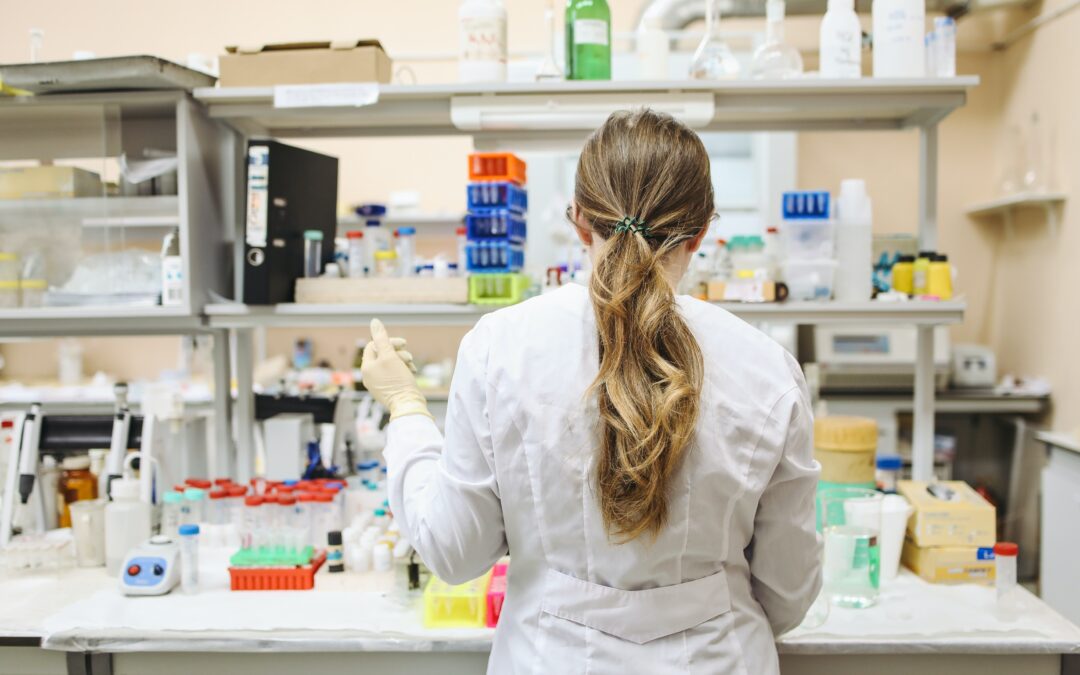Successfully conceiving a child can be a stressful journey for many reasons. But did you know that there is a way to test the genetic abnormalities of your embryo before implantation?
The technology behind this test is called preimplantation genetic testing (PGT) and it has become popular in recent years among hopeful parents who want to understand their options when it comes to fertility.
However, not everyone is aware of all the pros and cons associated with PGT—not only do these tests reveal important information about the health of your embryo but they also come with some significant limitations as well.
What is the difference between preimplantation genetic testing (PGT) and preimplantation genetic diagnosis (PGD)?
First, it’s important to define our terms.
Preimplantation genetic testing (PGT) is used to test the health of embryos before they are implanted into the uterus. It can be performed on embryos that were created through egg donation or in vitro fertilization (IVF).
Preimplantation genetic diagnosis (PGD) is used to look for specific inherited abnormalities and can be performed either for inherited genetic diseases or inherited chromosome rearrangements.
PGD is typically performed on embryos that are created through IVF. During IVF, eggs are fertilized with sperm in a laboratory dish, and the resulting embryos are allowed to grow for several days. Once the embryos reach a certain stage of development, a small sample of cells is removed from each one for genetic testing. This is done using a technique called blastomere or trophectoderm biopsy .
The cells that are removed are then tested for a variety of genetic disorders and chromosomal abnormalities. This can include conditions such as Down syndrome, cystic fibrosis, and Tay-Sachs disease, as well as specific genetic mutations that are known to run in a family. The results of the genetic testing are then used to determine which embryos are the most likely to result in a healthy pregnancy.
Pros of Genetic Testing for IVF
Testing allows couples to avoid the possibility of transmitting genetic abnormalities to their children.
One of the main advantages of genetic testing is that it allows couples to avoid the possibility of transmitting genetic abnormalities to their children. If you’re trying for a baby, and one of your partner’s parents has some kind of genetic abnormality (such as Cystic Fibrosis or Huntington’s Disease), then it can be extremely difficult to know if you’ll pass this on to your child.
Getting tested before conception allows your fertility specialist to determine where the risks lie and help find a path forward in your specific fertility journey.
Genetic testing can decrease the risk of miscarriage.
A genetic test can help you find out whether your embryos are free of mutations that increase the risk of miscarriage, giving you peace of mind.
If your embryos have a genetic mutation that increases their risk of miscarriage , then they can carry this same mutation in their DNA. This can happen if one parent has an inherited condition like cystic fibrosis (CF), which is caused by two copies of a certain gene being mutated; or if both parents’ DNA has been altered by exposure to chemicals during fertilization or embryogenesis (the process where an embryo develops into a baby).
Fortunately, there are ways around this: PGTs allow couples who do not want children affected by CF and other hereditary diseases such as diabetes mellitus Type I or II to see if any embryos might be free from these issues.
Genetic testing helps improve the understanding of implantation failure.
PGT can help with IVF success and failure. Genetic screening helps a specialist understand the specific circumstances of each fertility case.
Arguably the biggest advantage of conducting genetic testing is that it can help fertility specialists eliminate certain issues with the embryo. Simply determining whether the embryos are normal or abnormal is a huge step in how a fertility specialist can approach your treatment and IVF options.
Cons of Genetic Testing for IVF
Not all genetic abnormalities are detectable by PGT.
PGT is a screening test and not a diagnostic test. According to the Washington University of Physicians, “PGT-A cannot detect all chromosome abnormalities such as small extra or missing pieces of chromosomes (microdeletions and microduplications). PGT-A cannot detect any single-gene disorders.”
So while genetic testing can reveal much about the embryo, it is not a catch-all solution or a miracle test. For example, if the embryo has an extra copy of chromosome 21 (Trisomy 21), this will be seen by PGT but it won’t be possible to definitively determine whether this is due to an error in fertilization or if it came from one of your eggs/sperm.
Genetic testing for fertility is expensive.
While genetic testing can be a useful tool, it is often prohibitively expensive. A simple blood test to measure the number of eggs in a woman’s ovaries costs about $300-$500 and does not provide any information about egg quality or embryo viability.
If you want to know whether your embryos are genetically normal and what that means for your chances of success with IVF, you will need PGD. Without insurance, this testing can add several thousand in cost.
IVF genetic testing could decrease the chances of a successful embryo.
In addition to the cost of IVF, there are two other major downsides that many patients experience. First, some embryos will be removed during genetic testing because they contain genetic abnormalities or birth defects. Second, even if an embryo doesn’t need to be removed because it’s healthy enough for implantation (which usually happens after a few days), because PGD tests remove cells from embryos before they’re implanted into women’s bodies, this procedure can decrease your chances of having a successful pregnancy.
It must be said that the effect of removing cells for testing is very much up for debate .
Genetic testing can delay the time it takes to conceive.
If you’re trying to conceive, genetic testing can delay the time it takes to conceive. Everyone wants to be pregnant yesterday, but if you are sending the embryo for a biopsy, the pelvis often has to cool down, which is much less ideal than doing a fresh transfer.
So, by agreeing to conduct genetic tests, it might take some patience while embryos are being tested. For those wishing to become parents quickly, testing might make them reconsider their timetable while a specialist analyzes the embryos for defects.
Genetic testing can be an important step in understanding your fertility. It can be difficult to know if it’s the right step for you. The best way to determine the next step is to reach out to a fertility specialist who can create a path forward in your fertility journey. Don’t suffer in silence. Seek help today. Find answers. Find peace.




